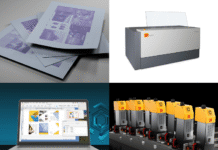
In October, the Frankfurt Book Fair will open its doors. A small team from Delhi NCR-based Clavis Technologies will be meeting up with big publishing houses from Europe, North America and Asia. For them, the fair is more than just a marketplace; it is an opportunity to demonstrate how an Indian company can help rethink how books and journals are created in the age of artificial intelligence.
The Frankfurt Book Fair 2025 will take place from 15 to 19 October, 2025 at Frankfurt Trade Fair grounds in Frankfurt, Germany.
“For years, we have been helping publishers embrace automation and AI to streamline workflows and accelerate time to market,” said Abdul H Kidwai, CEO at Clavis. “Frankfurt gives us the right stage to demonstrate that.”
Building tools for a messy industry
Publishing still involves time-consuming tasks such as many rounds of proofreading, manual style checks and file conversions with multiple versions to control. Clavis has built its business around removing these obstacles. Its software automations can automatically enforce style guides (from pre-trained CMOS and ADA to publisher specific style guides), verify references, convert manuscripts to XML and manage typesetting and layouts in a fraction of the time.
At Frankfurt, the company will also display new modules, including an AI powered audiobook proofing tool, high-volume XML conversion (JATS and BITS compliant), and layout automation. The proposition is straightforward: publishers do not need to overhaul their infrastructure; Clavis will help integrate AI and automation into what currently exists via a set of APIs that can plug into existing editorial systems.
Why Frankfurt matters
The Book Fair remains the world’s largest gathering of publishers, distributors and technological companies. “European publishers are focused on producing content that is accessible, standards-compliant, and future-proof, with multi-format outputs as a given while in India the focus remains on cost optimization and outsourcing.” Kidwai stated “But increasingly, both sides recognize that automation and AI are the only way forward.”
Clavis intends to capitalise on this confluence. Kidwai believes the firm’s 15 years of automation experience, combined with a strong focus on AI and generative AI over the last few years, offer it an advantage over competitors.
Stories behind the sales pitch
Clavis claims to have reduced typesetting and editorial timeframes for a large academic publisher by approximately one-third. For another client who manages high-volume publications, XML-first workflows enhance accuracy while lowering expenses. In the K-12 market, the company developed an AI-powered question and answer generator that swiftly enhanced learning material.
Kidwai suggested that these instances demonstrate how automation can speed up and reduce the cost of publishing while maintaining accuracy. “It’s not just theory—we have live cases where publishers saw measurable gains,” he said.
The road ahead
Beyond Frankfurt, Clavis is betting heavily on generative AI and smart content management. The company’s three-to-five-year strategy is to delve further into digital ecosystems, going beyond books and journals to other types of content while remaining intimately integrated with publishers’ systems.
“Events like Frankfurt are where we can start those conversations,” Kidwai said. “We want publishers to see us not just as a software vendor from India, but as a long-term partner in their digital transformation.”
As the fair begins, Clavis’ objective will be to stand out in a hall crowded with established worldwide players. But for the Delhi team, the potential is clear: to demonstrate that India’s contribution to publishing does not have to be restricted to back-end services, but rather set the standard for how books are made in the future.

















